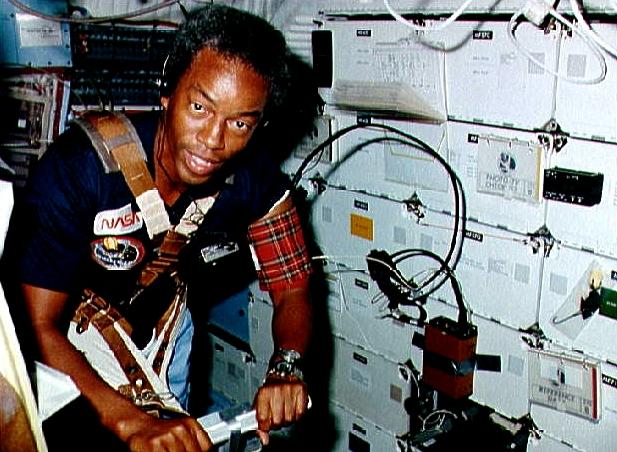
Photo: nasa.gov
Guion Bluford was born in Philadelphia in 1942. He remained in Philly until he went to college at Penn State, where he studied aerospace engineering. In addition to the B.S., he received an M.S. and a Ph.D. in aerospace engineering. Bluford also became a pilot for the Air Force and flew 64 of 144 combat missions over North Vietnam.

Photo: nmspacemuseum.org
In 1979, NASA selected Bluford from a pool of candidates to become an astronaut. On August 30, 1983, he became the first African American to fly in space. Not only was his participation as a black man momentous, but it was also the first night launch for the Challenger. When asked about the event later, Bluford said he was surprised that people had showed up to watch: it was at 1:00 a.m. and it was raining.

Photo: astronautix.com
When Bluford went up for the first time, he had not expected to be the first African American in space. Fred Gregory and Rob McNair were other African Americans in the NASA program who could have gone up first. As he has stated, "The No. 2 guy would probably be a lot more fun." Either way, Bluford made his first space mission fun because when the crew listened to the audio of the ascent, they realized that Bluford laughed during the entire launch
.

Photo: nasa.gov
Bluford's last mission took place on December 2, 1992. With this last mission, Bluford had logged 688 hours (28 days, 16 hours and 33 minutes) in space. As Bluford later said, he "wanted to set the standard, do the best job possible so that other people would be comfortable with African-Americans flying in space, and African-Americans would be proud of being participants in the space program and encourage others to do the same."

Photo: jsc.nasa.gov
No comments:
Post a Comment